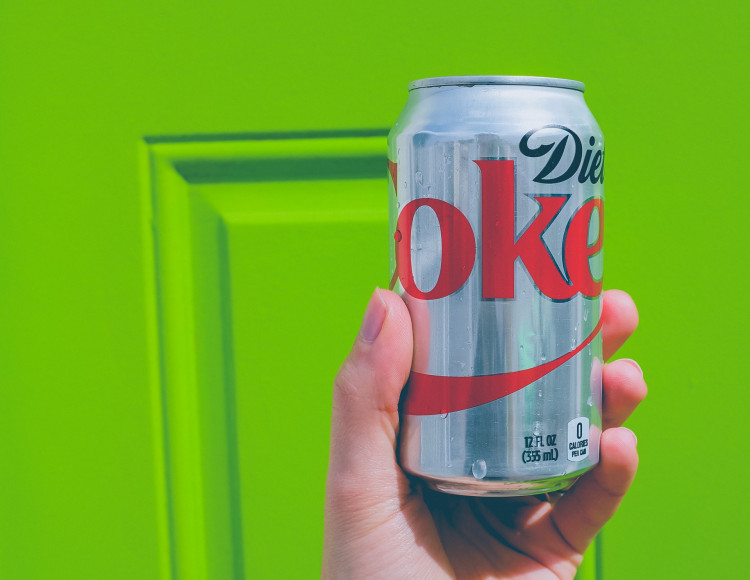Recent research suggests that acesulfame, a sweetener widely used in low-sugar and sugar-free food and drinks, could be a potential carcinogen, a development that could send ripples through the food industry.
This Thursday, sources cited by Reuters revealed that the International Agency for Research on Cancer (IARC), a part of the World Health Organization (WHO), is considering designating acesulfame as a "potential carcinogen" as early as July.
In response to the Reuters report, the WHO announced that it would publish relevant content on this subject on July 14, although it refrained from divulging specifics.
Acesulfame, an artificial sweetener known for its low caloric content and high sweetness, was approved by the U.S. Food and Drug Administration (FDA) as a lawful food additive in 1974. It's one of the common sugar substitutes found in sugar-free drinks, including Diet Coke.
In June, IARC experts evaluated about 1,300 studies related to acesulfame. Earlier this month, the agency resolved to classify acesulfame as a probable carcinogen and plans to formally announce this decision on July 14.
The IARC isn't the only WHO affiliate studying acesulfame; the Joint Expert Committee on Food Additives (JECFA) is doing the same. An IARC spokesperson stated that JECFA's findings would complement those of the IARC. While the former explores the carcinogenic potential of acesulfame, the latter will further explain the likelihood of specific types of harm, such as cancer, occurring at different intake levels.
JECFA's research results will also be published on July 14.
Even though the term "potential carcinogen" sounds alarming, according to the IARC's list of carcinogens, acesulfame's hazard level is on par with staying up late, using mobile phones, and drinking coffee, classifying it as a 2B level carcinogen. Its impact on the body is less than that of cigarettes, ham (Class 1 carcinogens), and red meat (Class 2A carcinogens).
Despite criticism that the IARC has overextended its list of carcinogens, creating unnecessary panic, the agency's resolutions have had a significant impact on commercial companies.
For instance, in 2015, the IARC designated glyphosate as a 2A level carcinogen. Although organizations like the European Food Safety Authority (EFSA) disagreed, many herbicide companies still chose to alter their formulas to appease consumers. As a result, Bayer, a German chemical giant that produces glyphosate herbicides, ended up in the crosshairs, with some companies who were forced to change their formulas seeking compensation from Bayer and eventually winning.
The International Sweeteners Association (ISA), which counts Coca-Cola and Mars Wrigley among its members, has responded to the IARC's carcinogenic allegations against acesulfame, suggesting that the IARC "might mislead consumers."
Frances Hunt-Wood, the ISA Secretary-General, noted that the IARC isn't a food safety agency and its review of acesulfame was not scientifically comprehensive and largely based on widely disputed research.
Additionally, Kate Loatman, the executive director of the International Beverage Association's board of directors, stated that the IARC's resolution might mislead consumers to abandon safe sugar-free and low-sugar choices and consume more sugar.
The safety of acesulfame has long been a topic of dispute.
At the turn of the century, Italy's Ramazzini Institute reported that certain types of cancer in rats were linked to acesulfame.
In 2022, an observational study conducted in France involving 100,000 adults suggested that individuals who consume a significant amount of artificial sweeteners, including acesulfame, might have a slightly higher risk of cancer.
Neither of these studies conclusively proved that the intake of acesulfame increases the probability of developing cancer, and the Ramazzini Institute's findings were questioned by regulatory bodies for potential flaws.
It's noteworthy that since 1981, the JECFA under WHO has maintained that the small intake of acesulfame does not pose a risk. An adult weighing 60 kilograms would need to drink 12 to 36 cans of Diet Coke daily to negatively affect their health, a view largely accepted by regulators in Europe and the United States.
Nevertheless, commercial companies remain cautious about acesulfame. PepsiCo removed acesulfame from its soda water formula in 2015, reinstated it a year later, and then removed it again in 2020.






